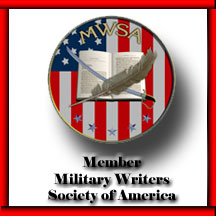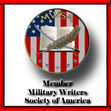|
I felt like I’d been flying forever. Finally, somewhere west of Wake Island and far beyond exhaustion, I fell asleep. I awoke with a start: The C-130’s engines somehow sang a different tune. And the deck, littered with jeeps and ammo pallets was not quite level. Then a wing dipped and we circled, descending through the inky night. I was headed for Vietnam with 20 other cavalrymen and our next stop was Okinawa; realizing that I must have slept at least seven hours, I felt better immediately. We leveled off as the pilot completed the turn and I saw below a single point of light against an irregular shape infinitely inkier than the darkness behind it. Why was Okinawa blacked out? The hydraulics screeched. Our descent slowed. My ears popped as the engines growled and props changed pitch to become speed brakes. Abruptly, we were on the ground, taxiing. We stopped near a hangar and as the engines whined into silence the Air Force crew chief huddled with one of our officers, a colonel. “Leave everything except headgear and weapons,” he said. Something was wrong. We jumped down to the runway and waited. Usually a bus came to take us to the terminal; this time the runway remained dark and empty. In the distance a single bulb burned. We marched single file, following a white line until we came to a hangar, atop which burned that one, lonely light. There was a sign below it: Welcome to Iwo Jima International Airfield. Elevation: Dry season +1 Rainy season -1 Iwo Jima? The colonel gathered us into a semicircle and explained that an engine had caught fire and was shut down. The four-engine C-130 can fly on three, if necessary, but ours was loaded to the maximum and extended flight would push the remaining engines to their limits, inviting another fire or failure. Returning to Wake Island meant a five-hour flight; continuing to Okinawa was two hours. Our pilot had opted for an emergency landing on Iwo Jima. The fifty-some airmen manning this airfield, whose sole purpose was to provide an emergency landing spot in the Pacific vastness, were overjoyed at our arrival. Months had passed since anyone dropped in, months since they had reason to believe they served any purpose on their lonesome bit of volcanic rock in the middle of nowhere. Tumbling from their beds to greet us, they asked, many times, if there were any women on our plane. Nope. Just us grunts with rifles. “Any nurses?” Just us grunts. “WACs?” Just 20 G.I.s with rifles. “Not even a BAM?” Sailor-speak: “Big Assed Marine” — a female Marine. We stood around in steel helmets, explaining, again and again, that we were bound for Vietnam: no women. Their disappointment was obvious: As a lonely airman explained, this Pacific paradise’s delights included a woman behind every tree. Alas, no trees on Iwo Jima. Nevertheless the airmen were perfect hosts. They gave us their bunks for naps and served us cold chicken, hamburgers, sandwiches and anything else they had, from milk and coffee to Scotch, vodka, bourbon or gin — and refused to take our money. Then they showed us two films: Combat footage shot by John Ford’s Navy cinematographers of the actual conquest of Iwo Jima, and the John Wayne movie, “Sands of Iwo Jima.” Seven thousand American Marines died taking this volcanic island; 22,000 Japanese gave their lives trying to stop them. We Americans wanted it for emergency landings by shot-up B-29s returning from bombing missions over Japan. By VJ DAY some 800 such air crews had landed safely on Iwo Jima; many if not most would have died had it not been for those 7,000 marines. And now they had saved another plane and more Americans. I felt humbled. What would we have done in that empty sky over thousands of square miles of water with no place to land? How many of us would survive a water landing? Or shark-filled waters? By the time both movies had screened, the sun was up; we went outside for a look around. I saw rocky beaches and sharp coral. No sand. “John Wayne musta took all them ‘Sands of Iwo Jima’ back to Hollywood,” opined one of our hosts. At mid-morning I visited the hangar where a half-dozen men worked on our C-130. A scorched nacelle and wing marked the engine that had caught fire. Mechanics had removed it and were busily fitting a new engine to its myriad connections. When our ride was ready, we lined up to board. As our crew chief, a man of about 35, passed me, I stepped out of line. “Tell me the truth, Sarge,” I said. “How much danger were we actually in? Could we have made it to Okinawa?” He thought for a long moment. “We’ll never know. But I’ll tell you this: if there was no Iwo Jima, I’d have been on my knees praying the whole way. And if the skipper had decided to try for Okinawa on three engines, I, for one, would never fly with him again.” All the way to Okinawa I kept thinking about Iwo Jima’s marines. I tried to imagine what it was like in one of their landing craft, tossed by waves, shells bursting all around, inexorably headed toward an entrenched, fanatical enemy. Were they seasick? Fearful? What were their thoughts on that long, scary ride to the beach? Did they know they might die? Seven thousand dead. Seven thousand mourning mothers. Seven thousand grieving fathers. Thousands upon thousands of orphaned children, shattered wives and sweethearts. I was barely out of diapers when those men hit Iwo Jima’s bloody beaches, yet surely I owe them something. Surely they fought and died for me as much as anyone. © 2000 Marvin J. Wolf
0 Comments
Your comment will be posted after it is approved.
Leave a Reply. |
FROM Marvin J. Wolf
On this page are true stories, magazine articles, excerpts from books and unpublished works, short fiction, and photographs, each offering a glimpse of my life, work and times. Your comments welcome. © Marvin J. Wolf. All rights reserved. Archives
October 2023
Categories
All
|
|
|
Member, Military Writers of America
|
Website © 2016 Marvin J. Wolf. All rights reserved on website design, images and text. ꟾ Updated regularly.
Design by Andesign. |
Professional Reader, NetGalley
|

 RSS Feed
RSS Feed
